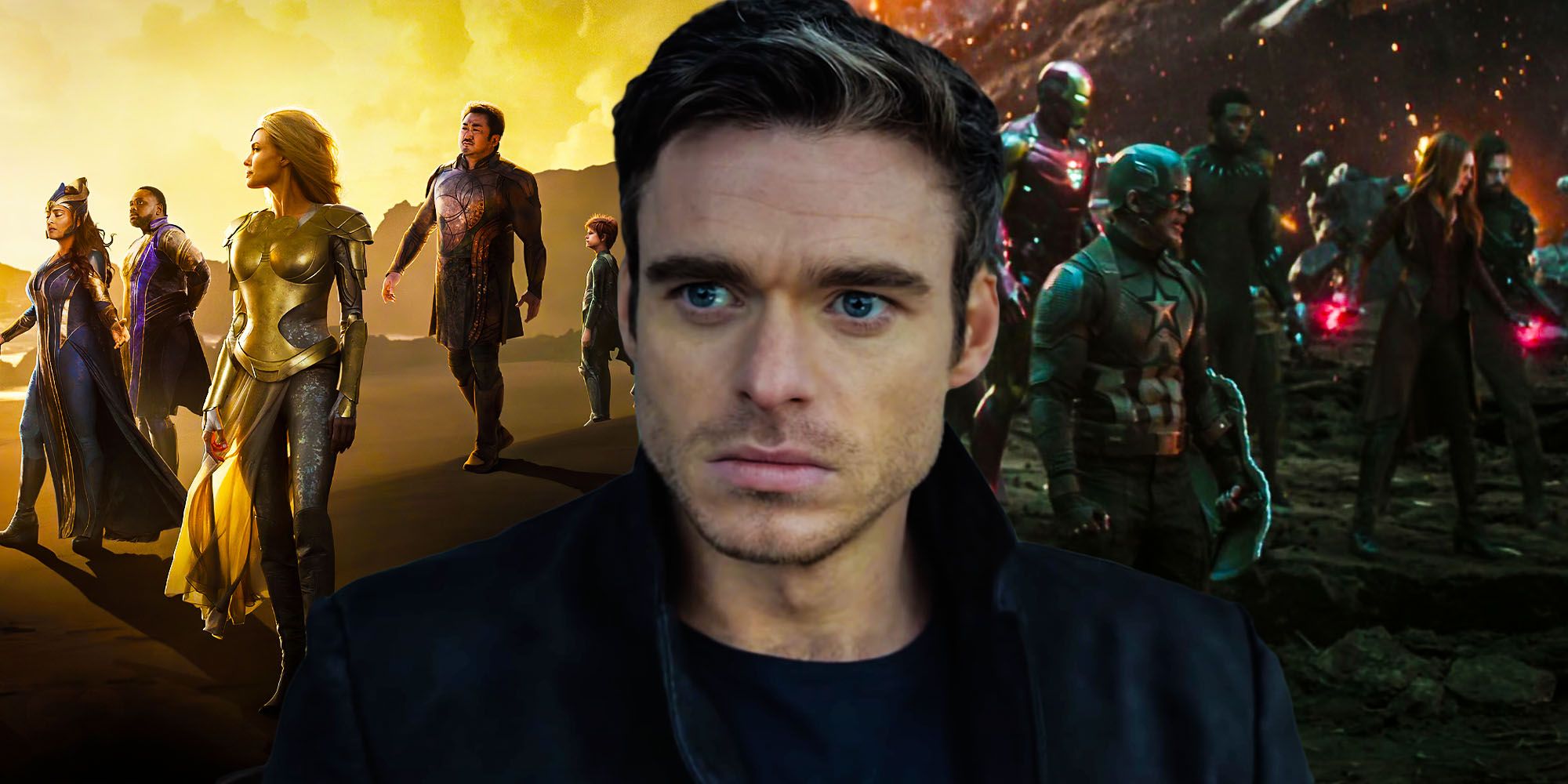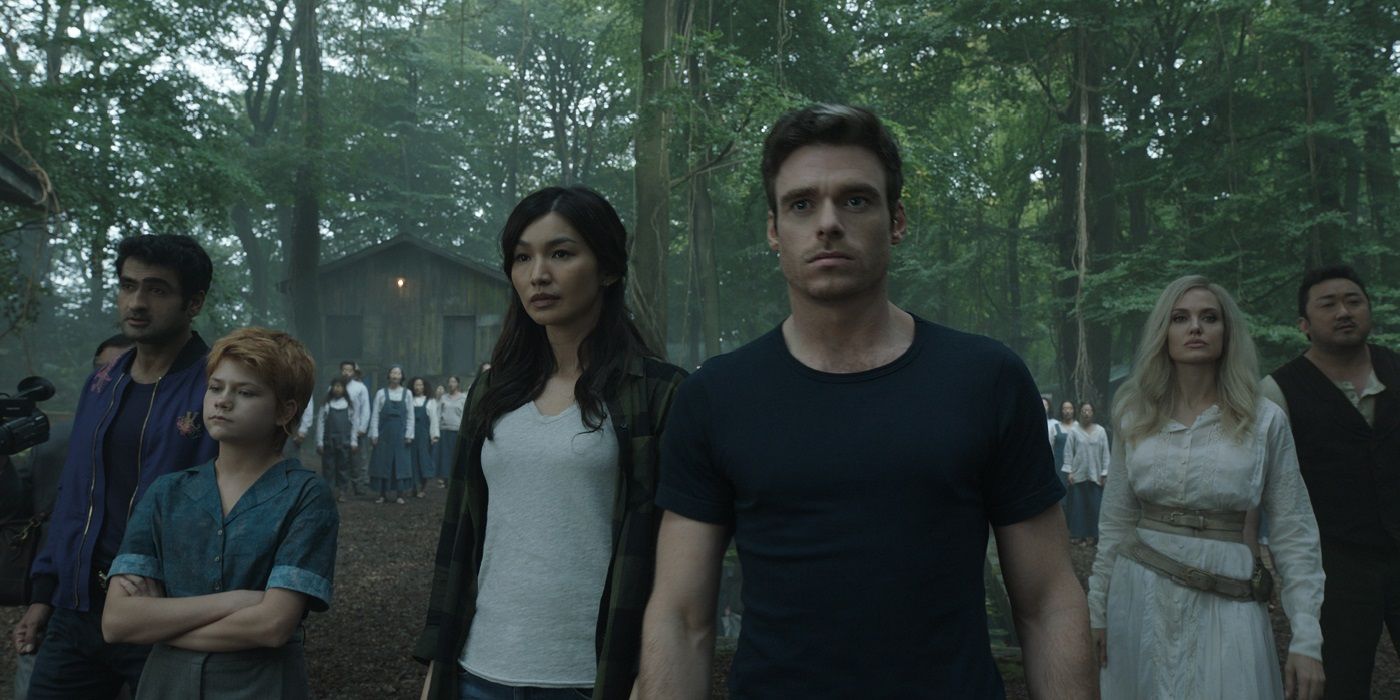
Warning: This post contains spoilers for Eternals.
The Eternals trailer gave a specific reason as to why the immortal beings didn’t get involved in Avengers: Endgame, but the real reason for why they didn’t interfere is far more depressing. Eternals marks a shift in the Marvel Cinematic Universe, a franchise that has largely been focused on Earth’s mightiest heroes and their friends. Chloé Zhao’s film, however, introduces ancient and powerful beings into the MCU whose lack of heroics over the last seven thousand years is cause for some angst.
Dane Whitman asks Sersi why she and the other Eternals didn’t join the Avengers in trying to stop Thanos from snapping half of the world’s population out of existence — or why they didn’t involve themselves in any war or human atrocities throughout history. Sersi’s response is that they were tasked by Arishem, the Celestial who created them, not to interfere unless it was to protect humans from the Deviants, their villainous counterparts. This is true of technology as well, with the characters encouraged only to slightly encourage ideas that would help them evolve rather than do the work for them. At the start of Eternals, Phastos is shown creating an engine that would have greatly changed society had it been introduced upon their arrival thousands of years prior. However, he was discouraged from doing so soon.
The Eternals were essentially lied to for why they were on Earth — it was to ensure the Emergence, the birth of the Celestial Tiamut, happened after the human population had evolved. The real reason the Eternals couldn’t protect humanity in other ways or stop them from fighting was because war produced the best technological advancements, escalating new innovations more rapidly than in non-war times. That, in turn, helped to increase the human population over time through better medical achievements and other advancements. And the large population was required for the Emergence to happen, with Tiamut feeding off of the energy before rising and destroying Earth completely.

While the reason makes sense from the Celestials’ standpoint, it’s rather sad to think that the Eternals were thwarted from engaging with humans in a way where they could use their powers for good. Druig struggled with this throughout Eternals, as did Phastos, who was gutted after seeing that humans used technological and weapons advancements for destruction. Their lack of involvement also turned the Eternals into passive bystanders instead of active participants in a world they were still a part of. The real reason behind their lack of interference is all the more depressing for the Eternals themselves, who nobly and loyally followed instructions while the truth was hidden from them.
The Celestials reaping the long-term benefits of human wars and catastrophe for the sake of technological evolution is disheartening all around. It certainly makes the Eternals somewhat more sympathetic, though, whereas a decision to not interfere unless Deviants were involved made them less so. Either way, Eternals presents the true reasons for why the eponymous heroes didn’t interfere in human history, effectively changing the way they’re perceived. As it stands, they’re far more likely to be involved in human-saving actions in the future of the MCU after Eternals’ finale changed things for them.
from ScreenRant - Feed https://ift.tt/3kcrQJf


0 Comments